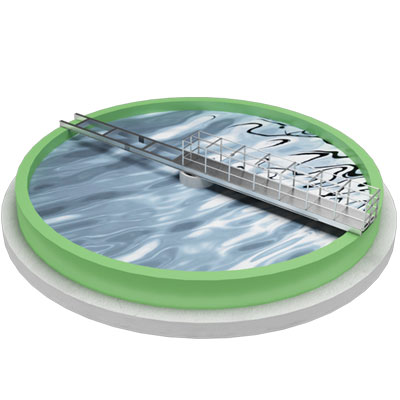Leaching Process
Scrap printed circuit boards were selectively smelted at 200°C to produce a metallic alloy having three phases. These phases were identified as a lead-rich phase, a low tin content alpha bronze phase, and a high tin delta phase.
Electrochemical leaching method on this alloy were done in 1 mol/dm3 sulfuric acid or in 2 mol/dm3 hydrochloric acid (adjusted to an ionic strength of 3 mol/dm3). The lead rich phase was more strongly passivated in sulfate media, and in this medium the high tin content delta bronze was more resistant to corrosion than the lower tin alpha bronze phase.
In chloride medium the lead phase and both bronze phases corroded readily, but with current densities about an order of magnitude lower than in sulfate medium (static conditions) for the bronze phases. The high tin delta bronze phase was found to form a passivating layer in sulfate media. A similar layer was not seen in chloride medium.
The leaching method in sulfate medium also showed the existence of an alpha bronze phase of lower tin content in the centres of the alpha phase grains. This phase was quite resistant to leaching in sulfate medium.
STAR TRACE offer complete leaching process with highly cost-effective and environmental friendly process.

